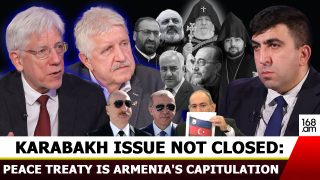Russia, Iran, Turkey sign on ‘de-escalation zones’ in Syria

Turkey, Iran and Russia on Thursday signed an agreement calling for the setting up of four “de-escalation zones” in war-torn Syria — the latest attempt to reduce violence in the Arab country — and said that President Bashar Assad’s air force would halt flights over the designated areas in the country’s north, center and south, reports ABC News.
But as officials from the three countries that back rival sides in the conflict signed the agreement at the Syria cease-fire talks in Kazakhstan, members of the Syrian opposition delegation shouted in protest and walked out of the conference room in Astana, the Kazakh capital.
The opposition is protesting Iran’s participation at the conference and role as a guarantor of the agreement, accusing it of being a party in the war that has killed some 400,000 people and displaced half the country’s population.
The Kazakhstan agreement calls for delineating zones where front lines between the Syrian government forces and the rebels would be frozen and fighting halted, according to a statement made by rebels on Wednesday.
The zones include areas in the provinces of Idlib and Homs, the eastern Ghouta suburbs outside Damascus, and an area in the south of the country.
Details of the agreement were not immediately made public and it was not clear if international observers will be sent to Syria to monitor its implementation. A previous cease-fire agreement signed in Astana on December 30 by Russia, Iran and Turkey helped reduce overall violence for several weeks and eventually collapsed.
The head of Russia’s delegation to the talks in Kazakhstan, Alexander Lavrentyev, said the Syrian government will abide by the agreement unless rebel groups inside those areas stage attacks.
Lavrentyev said Turkey, Iran and Russia have agreed on the possibility of allowing international observers in case there is “unanimity” on that issue. He spoke at a press conference shortly after delegations of the three sponsor nations signed the agreement in the presence of the U.N. Syria envoy, Stafan de Mistura.
Military operations are likely to continue against members of al-Qaida-linked group known as the Levant Liberation Committee, which is active in areas where the fours zones are meant to be.
Iran and Russia have been among the strongest backers of Assad while Turkey is a main supporter of opposition groups that have been trying to remove him from power. Turkey and Russia are deeply entangled in the war in Syria, with each country having troops on the ground there.

























